New Course Explores Use of Zombies in Pop Culture
Part of UB’s Minor in Pop Culture in School of Communication Design
Grendel did it. So did Frankenstein, Dracula, Cujo, and the Golem. Eventually, all great literary and cinematic monsters leap from the page or screen into popular culture. And from there, it’s just a small step into the college classroom.
Next fall, the University of Baltimore will roll out its new pop culture minor with a course on zombies. The course’s instructor, Arnold T. Blumberg, M.A. ’96, D.C.D. ’04, visiting professor in UB’s School of Communication Design and co-author of Zombiemania: 80 Movies to Die For, literally wrote the book on the subject. It’s one of only a handful of courses like it in the country.
The zombie—a creature who starts life as a normal human being, but through one process or another becomes “undead” and then wreaks havoc on the living—is used again and again in film, TV, print media of all kinds, video games, and even in popular music (the infamous “Thriller” video) to convey a basic loss of control and ability to reason with something that is basically indifferent, yet extremely motivated. The zombie, as it appears in modern Western culture, has become allegorical for an unthinking, unfeeling way of living and relating to others, and a bellwether of complete social collapse. At the same time, the zombie is unaware of the damage it is causing, because it is not, well, alive.
“It’s part of the American mindset,” Blumberg said. “The zombie functions as an allegory for all sorts of things that play out in our country, whether it’s the threat of communism during the Cold War or our fears about bioterrorism in 2010. It’s relatively easy to connect the zombie to what is happening in culture.”
UB’s School of Communications Design Director Jonathan Shorr sees zombies in a larger context:
“We know from archaeologists and anthropologists that a society’s artifacts tell us a lot about what that culture valued and feared,” Shorr said. “Stories about King Arthur, for example—from Thomas Malory’s Le Morte d’Arthur in the 15th century, to Prince Valiant in the 1950’s, then T.H. White’s The Once and Future King in the 1960s and John Boorman’s Excalibur in the 80’s—aren’t stories about 9th century England as much as about the culture of the time in which the work was produced. The same is true with zombies.”
”Even major fans of zombies—and they’re out there, by the millions,” says Blumberg, “may not spend time contemplating the underlying meaning of this monster, despite its potency. It takes some close attention to really understand what a given film, book or graphic novel is saying about the zombie—and what zombies are saying about the culture. That’s what we’ll be getting into this fall.”
Blumberg, curator of Geppi’s Entertainment Museum in Baltimore, has done extensive research into the genre, and the course will spend some time looking at the history and legacy of this particular “brand” of monster, from the recent 28 Days Later, to George Romero’s acclaimed Night of the Living Dead and its sequels, to the first commercial film that featured a zombie, 1932’s White Zombie, with Bela Lugosi. The course also will consider the zombie in literature and folklore, as well as the (pseudo) science that is occasionally brought in to prove the existence of zombies.
“We’ll have fun with it, but we’ll also give it a serious look in different contexts, like that of American progress,” Blumberg said. “To the zombie, our progress doesn’t matter at all. They just keep coming after us, usually at a pretty slow pace, but nonetheless we can’t stop them even though we have the weapons and a lock on the door. Their relentlessness, and the fact that they’re our own family and friends turning on us, says something profound about our society.”
Further details about UB’s course on zombies will be announced soon.
The University of Baltimore is a member of the University System of Maryland and comprises the School of Law, the Yale Gordon College of Liberal Arts and the Merrick School of Business.
 Horror News | HNN Official Site | Horror Movies,Trailers, Reviews
Horror News | HNN Official Site | Horror Movies,Trailers, Reviews
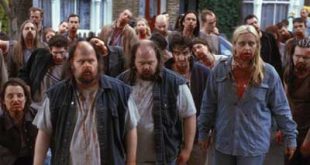
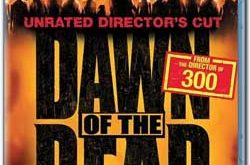
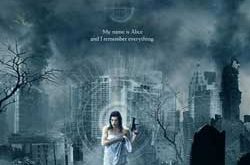

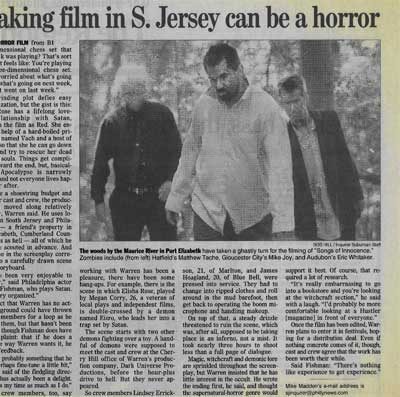
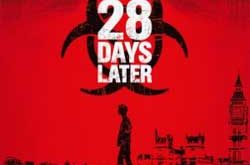
What a great resource!